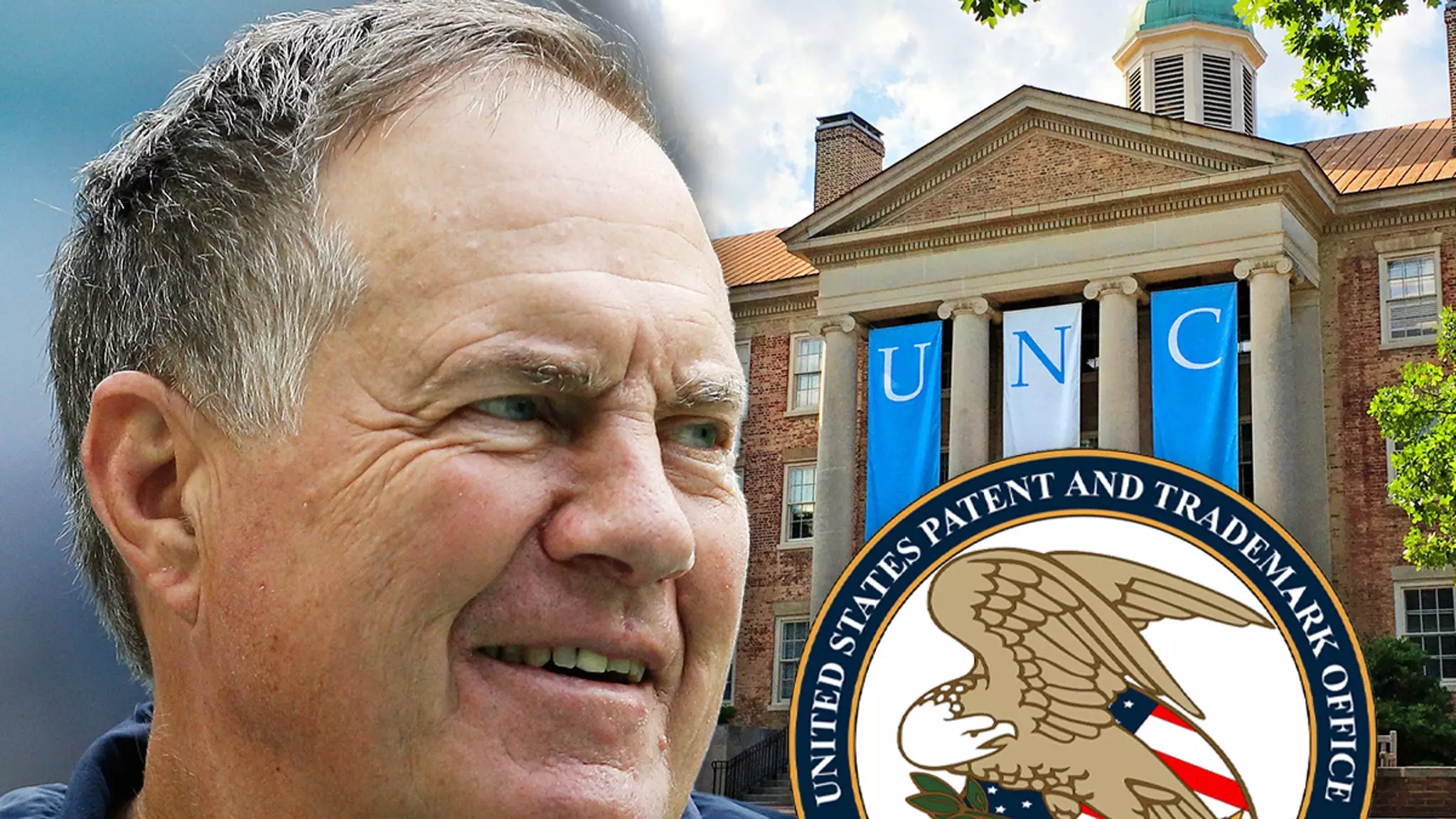The recent announcement regarding Bill Belichick, the venerable NFL coach, transitioning to the University of North Carolina’s Tar Heels football program has sparked a firestorm of enthusiasm and creativity among fans. His decision to switch from the seasoned arena of the NFL to the world of college football is noteworthy, underscoring a substantial shift in both his career trajectory and the landscape of college sports. As fans reel from the excitement, one super fan, Anthony Proscia, has taken matters into his own hands by trademarking the phrase “Chapel Bill.” This move has not only captured attention but underscores the intense fan loyalty that defines college sports culture.
Proscia’s efforts stem from a desire to protect what he sees as a burgeoning cultural meme: “Chapel Bill.” The phrase cleverly merges the name of the town, Chapel Hill, with lightweight allusions to Belichick’s illustrious career. Proscia openly admits that one of his primary motivations was to prevent rival schools like Duke and NC State from potentially capitalizing on the phrase, thus demonstrating an instinctive brand awareness common among dedicated alumni. This is not merely about protecting a catchy slogan; it speaks volumes about the fierce competition among North Carolina’s collegiate factions, which adds an extra layer of intrigue to the ongoing narrative of UNC and its athletic aspirations.
In today’s era of college sports, where name, image, and likeness (NIL) deals have transformed how players and institutions approach branding, the financial implications of Proscia’s trademark could be considerable. The arrival of a coaching titan like Belichick could fundamentally alter recruitment strategies, and an influx of revenue from branded merchandise could significantly bolster the program’s financial standing. The fact that Proscia is already considering options to collaborate with either the school or the renowned coach demonstrates a willingness to adapt and leverage opportunities as they arise.
However, the aspiration to secure the trademark is not without its hurdles. Trademark filings involve a regulated process, and being the first to file does not guarantee ownership. Proscia may find that other candidates are equally interested in “Chapel Bill,” highlighting the competing interests surrounding collegiate branding. The potential for affiliate partnerships with the university or Belichick himself adds an exciting layer to the trademark narrative, but until negotiations or approvals take place, the future remains uncertain.
The situation also reflects broader themes within college sports, where branding and identity play pivotal roles in attracting recruits and fostering community. As Belichick brings his storied legacy to the Tar Heels, the intertwining of sports fandom with strategic branding efforts signals a new era. Proscia’s venture not only reveals individuals’ personal attachments to their institutions but also demonstrates how modern collegiate sport is evolving—combining passion, commerce, and competition in engaging and often unexpected ways. The convergence of these elements will continue to shape the narrative of college athletics for years to come, making Proscia’s initiative a fascinating case study in community identity and brand management.

